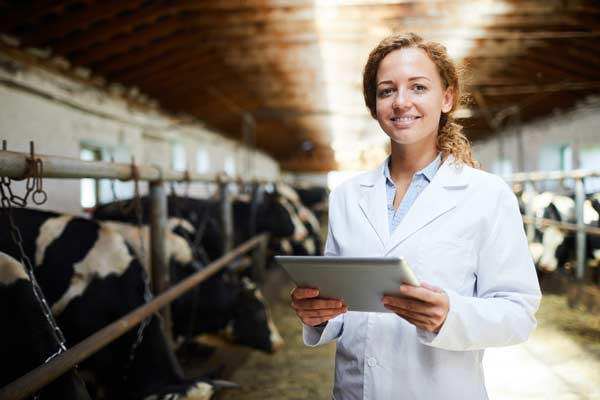The Challenges of Traditional Farming Methods
Traditional farming methods have been the norm for centuries, but these methods have numerous drawbacks that make them increasingly difficult to sustain in modern times. One of the main challenges of traditional farming methods is the amount of time and manual labor required to perform even the most basic farming operations. Farmers often need to physically inspect crops, manually irrigate fields, and maintain livestock, which can be time-consuming and expensive.
Another challenge facing traditional farming methods is the increasingly complex nature of modern farming. With advancements in technology, farming has become a highly specialized field, with different crops and livestock requiring specific attention and care. Furthermore, climate change has created new challenges for farmers, with unpredictable weather patterns and natural disasters causing significant crop and livestock loss.
The Advantages of Farming Management Software
Farming management software provides farmers with a range of advantages that address the challenges of traditional farming methods. One of the main benefits of this technology is precision agriculture, which involves using real-time data to make informed decisions about farming operations. With farming management software, farmers can monitor crop growth and adjust irrigation and fertilization in real-time, ensuring optimal growth and reducing waste.
Another advantage of farming management software is streamlined and efficient operations. By automating tasks such as crop monitoring and data collection, farmers can save time and money on manual labor. This technology also allows for easy collaboration between team members, increasing efficiency and reducing the risk of errors.
Finally, farming management software provides real-time monitoring and decision-making. With access to up-to-date data on crop and livestock growth, farmers can quickly identify potential problems and take action before they become larger issues. This technology also enables farmers to make informed decisions about things like crop rotation and financial planning, leading to more profitable and sustainable operations.
Features of Farming Management Software
Farming management software comes with a range of features designed to address the needs of modern farmers. These features can include
Crop Management
Crop management is a crucial aspect of farming, and farming management software can help farmers with tasks such as crop planning, seed selection, planting, and harvesting. This technology provides real-time data on crop growth, allowing farmers to adjust irrigation and fertilization schedules as necessary. It can also help with tasks such as pest control and disease management, reducing crop loss and increasing yield.
Livestock Management
Farming management software can also assist with livestock management tasks such as breeding, feeding, and health monitoring. With this technology, farmers can monitor animal growth and health, identify potential issues, and take preventative measures to ensure the well-being of their animals. This software can also help with tasks such as feed management and breeding schedules, leading to more efficient and profitable livestock operations.
Financial Management
Managing finances is a critical aspect of any business, including farming. Farming management software can assist with tasks such as bookkeeping, budgeting, and financial planning. This technology provides farmers with real-time data on revenue and expenses, allowing for better decision-making and reducing the risk of financial mismanagement.
Supply Chain Management:
Farming management software can also assist with supply chain management tasks such as inventory management, order processing, and shipping. With this technology, farmers can track inventory levels and manage orders, ensuring that they have the necessary resources to meet customer demands. This software can also help with tasks such as logistics and transportation planning, reducing the risk of delays and increasing efficiency.
Weather Monitoring
Weather patterns can have a significant impact on farming operations, and farming management software can help farmers monitor weather conditions and plan operations accordingly. This technology provides real-time data on weather patterns, allowing farmers to adjust irrigation schedules and take preventative measures against potential weather-related issues.
Types of Farming Management Software
There are three main types of farming management software: cloud-based software, desktop software, and mobile applications. Cloud-based software is hosted on remote servers and accessed via the internet, while desktop software is installed locally on a computer. Mobile applications are designed to be used on smartphones and tablets.
Choosing the Right Farming Management Software
Choosing the right farming management software can be a daunting task, but there are several factors to consider. First, farmers need to understand the needs of their farm and what features they require from the software. They should also research available options, evaluate features and costs, and consider compatibility with existing systems.
Implementing Farming Management Software
Implementing farming management software can be a complex process, but there are several steps farmers can take to ensure a smooth transition. These steps include data collection and organization, training and support, and integration with existing farm operations.
The future of farming management software is promising, with advancements in AI and machine learning expected to revolutionize the industry. As more farmers adopt this technology, the potential for a more sustainable and efficient agricultural industry increases.
If you’re a farmer looking to streamline your operations and increase your productivity, consider implementing farming management software like Agri Mark. With its comprehensive features and user-friendly interface, Agri Mark can help you manage your crops, livestock, finances, and supply chain more efficiently and effectively. Don’t get left behind in the rapidly evolving agricultural industry – take the first step towards a more sustainable and profitable farm with Agri Mark today.



